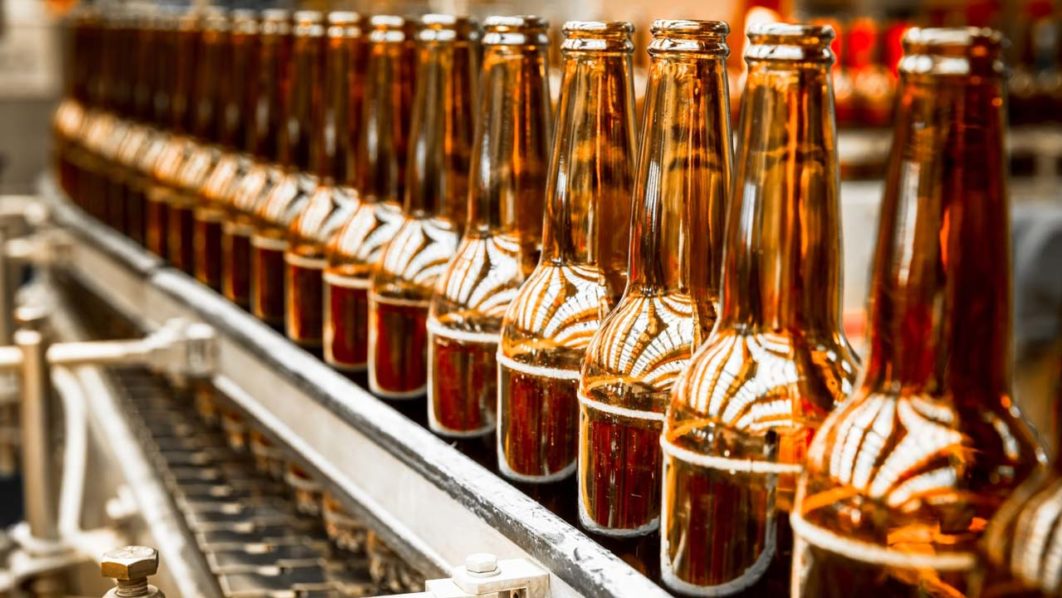
Rising insecurity, inflation, foreign exchange crisis and other macroeconomic challenges have continued to negatively impact the bottom line of breweries operating in the country.
With over 50 per cent drop in the profit margins of the companies quoted on the Nigerian Exchange Limited (NGX) in the last four years, the sector is subdued with a gloomy outlook.
Indeed, the industry is currently bedevilled with myriads of problems ranging from rising costs of sales and increased marketing and distribution expenses due to increased spending on transportation.
The sector has suffered the impacts of shrinking demand. Security challenges in Northern Nigeria, increasing intolerance towards alcoholic beverages in some parts of the North and changing lifestyles have continued to affect consumption.
The challenges of the industry were worsened by the tough fiscal regulations, including the June 2018 excise duty burden on beer, wines and spirits as well as an increase in the value-added tax (VAT) to 7.5 per cent, the COVID-19 restrictions and the naira redesign. These have triggered significant losses for independent brewers’ bottom lines.
The most hit within the period were the share prices of these companies on the trading floor of the Nigerian Stock Exchange (NSE), which have remained stagnant year to date (YTD), following negative sentiments that have trailed the stocks.
A look at the share prices of the companies over the last five years showed that a major player in the industry, Nigerian Breweries share price, which rose to N97.90 kobo as at October 2018, has depreciated to N38.50 kobo as at close of transactions on Friday, May 26, 2023.
Similarly, International Breweries declined to N4.90 kobo from N32 recorded at its peak in 2018. Guinness also suffered the same fate, as the share price, which stood at N95 in 2018 now stands at N70.
On the financials, Nigerian Breweries’ 2022 full-year result showed a 27 per cent drop in profit before tax (PAT), from N23.7 billion achieved in 2021 to N17.34 billion. The decline was due to N26.34 billion net loss on foreign exchange transactions in 2022 against N7.04 billion loss recorded in 2021.
However, the company’s revenue increased to N550.64 billion in 2022 from N437.29 billion achieved in 2021. The company’s operating profit rose by 25 per cent to N51.76 billion in 2022 from N41.49 billion in 2021.
Managing Director of the company, Hans Essaadi, said insecurity, especially the sit-at-home declared in the southeast by the proscribed Indigenous People of Biafra (IPOB), had negatively affected the company’s 2022 performance.
He added that the organisation’s operations were also affected by the recent currency redesign policy of the Central Bank of Nigeria (CBN) in the first quarter (Q1) of this year.
For International Breweries, its revenue grew by 5.6 per cent Q3’22 to N49 billion from N46 billion recorded in Q3 2021.
However, the increase in the cost of sales and other expenses led to a loss recorded for the period to the tune of N3.1 billion compared to a profit of N2.2 billion achieved during the same period last year.
During the period, the cost of sales was valued at N38 billion, representing 17 per cent high from the N33 billion recorded during the same period last year, while gross profit stood at N10 billion from N13 billion achieved in the same period last year.
Similarly, other expenses grew significantly to N1.3 billion from N131 million in Q3 last year.
Also, the company in its 2021 full-year result showed a loss after tax of N17.7 billion from a loss of N16.06 billion posted in the corresponding period of 2020.
However, revenue for the period increased to N182.3 billion, representing a growth of 33.27 per cent.
The company reported its lowest loss in five years in the first nine months of 2022, when it decreased by 79.93 percent to N2.8 billion from N-14 billion in the first nine months of 2021.
This was despite revenue reported by the beer maker being the highest in 10 years amounting to N160.4 billion in the nine months of 2022, up 13.91 per cent from N128.4 billion in the nine months of 2021
But quarterly, revenue was down by 9 percent to N49.03 billion in the third quarter (Q3) of 2022 from N53.88 billion in the second quarter (Q2) of 2022.
President of the Independence Shareholders Association, Moses Igbrude, said the Brewery industry has been facing myriads of problems ranging from a shortage of forex to import raw materials, unfavourable government policies and incessant increases in taxes on beverages and alcohol.
He said premium brands like Harp and Star have been pushed out of the market because of the high cost of production leaving low-quality beers in the market.
He urged the new government to address issues of forex, port challenge, insecurity, policy instability among others.
President of NewDimension Shareholders Association, Patric Ajudua said the sector will find it difficult to record meaningful profit due to the current unfavourable business environment and macroeconomic headwinds.
“Major problem of the industry is rising cost of operation occasioned by the high cost of energy, high inflation which has made lending cost/finance cost to go higher., imagine CBN MPR at 18.85 per cent, this is highly disincentive to borrowers/manufacture because it will make them suffer losses due to the inability to pass on the cost to consumers.”
He stressed the need for government to consider the reduction of diesel prices to tackle the problem of the rising cost of energy faced by manufacturers.
Ajudua further called for the establishment of an intervention fund to assist manufacturers’ access loans at a single-digit rate.






